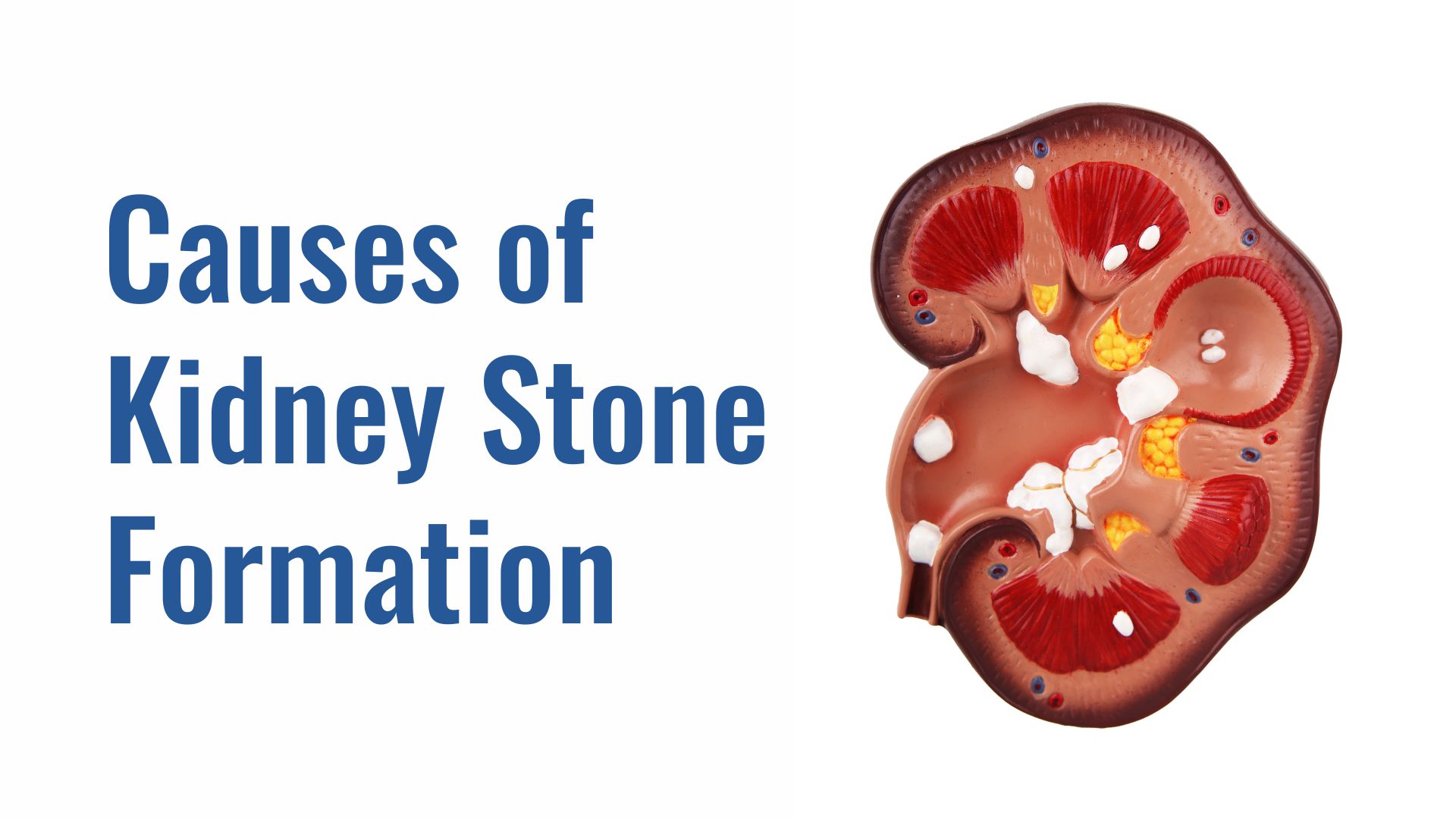Introduction
Understanding the causes of kidney stone formation is crucial to prevent and manage this painful condition. Various factors contribute to kidney stone development, ranging from dietary habits to genetic predispositions.
Dehydration
Dehydration is one of the most common causes of kidney stone formation. Inadequate fluid intake results in concentrated urine, which increases the likelihood of mineral crystals forming into stones. When urine is concentrated, there’s less liquid available to dissolve salts, leading to stone formation.
Dietary Factors
Your diet plays a significant role in the formation of kidney stones.
High Sodium Intake : Consuming too much sodium can lead to higher calcium levels in the urine, promoting the formation of calcium oxalate stones.
High Oxalate Diet : Foods rich in oxalate, such as spinach, beets, nuts, and chocolate, can contribute to the formation of calcium oxalate stones.
High Protein Diet : A diet high in animal proteins can increase the levels of uric acid, calcium, and oxalates in the urine, all of which can lead to kidney stone formation.
Low Calcium Intake : Paradoxically, insufficient dietary calcium can cause increased oxalate absorption in the gut, raising the risk of kidney stones.
Genetic Factors
Genetics can play a significant role in kidney stone formation. A family history of kidney stones increases an individual’s risk. Some people inherit conditions that predispose them to form stones, such as certain types of hypercalciuria, where the body excretes too much calcium in the urine.
Medical Conditions
Certain medical conditions can increase the likelihood of kidney stones:
Idiopathic Hypercalciuria: A condition where there is an unexplained increase in calcium levels in the urine, contributing to kidney stone formation.
Hyperparathyroidism : Overproduction of parathyroid hormone can elevate calcium levels in the blood and urine, leading to stone formation.
Cystinuria : This genetic disorder causes excessive cystine in the urine, resulting in cystine stones.
Gout : High levels of uric acid in the blood and urine can result in uric acid stones.
Obesity
Obesity is linked to a higher incidence of kidney stones. The excess body weight can alter the body’s metabolism and increase the excretion of stone-forming substances in the urine.
Low Urine Volume
Low urine volume often results from inadequate water intake or living in hot climates, where the body loses more fluid through sweating. This leads to concentrated urine and a higher risk of stone formation.
Frequent Urinary Tract Infections (UTIs)
Chronic UTIs can lead to the formation of struvite stones, composed of magnesium, ammonium, and phosphate. These stones are more common in individuals with recurrent infections.
Immobility or Sedentary Lifestyle
A lack of physical activity can reduce bone turnover, increasing the release of calcium from bones, which in turn raises calcium levels in the urine and the likelihood of stone formation.
Conclusion
Understanding the causes of kidney stone formation is essential for preventing this painful condition. By staying hydrated, maintaining a balanced diet, and managing medical conditions, you can significantly reduce the risk of developing kidney stones.
FAQ
- What are the main causes of kidney stone formation?
Kidney stones can form due to dehydration, dietary factors, genetic predispositions, and certain medical conditions.
- How does dehydration contribute to kidney stone formation?
Dehydration leads to concentrated urine, increasing the likelihood of mineral crystals forming into stones
- Can my diet cause kidney stones?
Yes, high sodium, oxalate, and protein intake, as well as low calcium intake, can all contribute to kidney stone formation.
- Is there a genetic link to kidney stones?
Yes, a family history of kidney stones and certain inherited conditions can increase the risk.
- Which medical conditions are linked to kidney stone formation?
Conditions like hyperparathyroidism, cystinuria, gout, and idiopathic hypercalciuria can increase the likelihood of stone formation.
- Does obesity increase the risk of kidney stones?
Yes, obesity is associated with a higher incidence of kidney stones due to altered metabolism and increased excretion of stone-forming substances.
- How do urinary tract infections lead to kidney stones?
Chronic UTIs can cause the formation of struvite stones, which are composed of magnesium, ammonium, and phosphate.
- Can a sedentary lifestyle cause kidney stones?
Yes, limited activity can lead to increased calcium levels in the urine, raising the risk of stone formation.


Leave a Reply